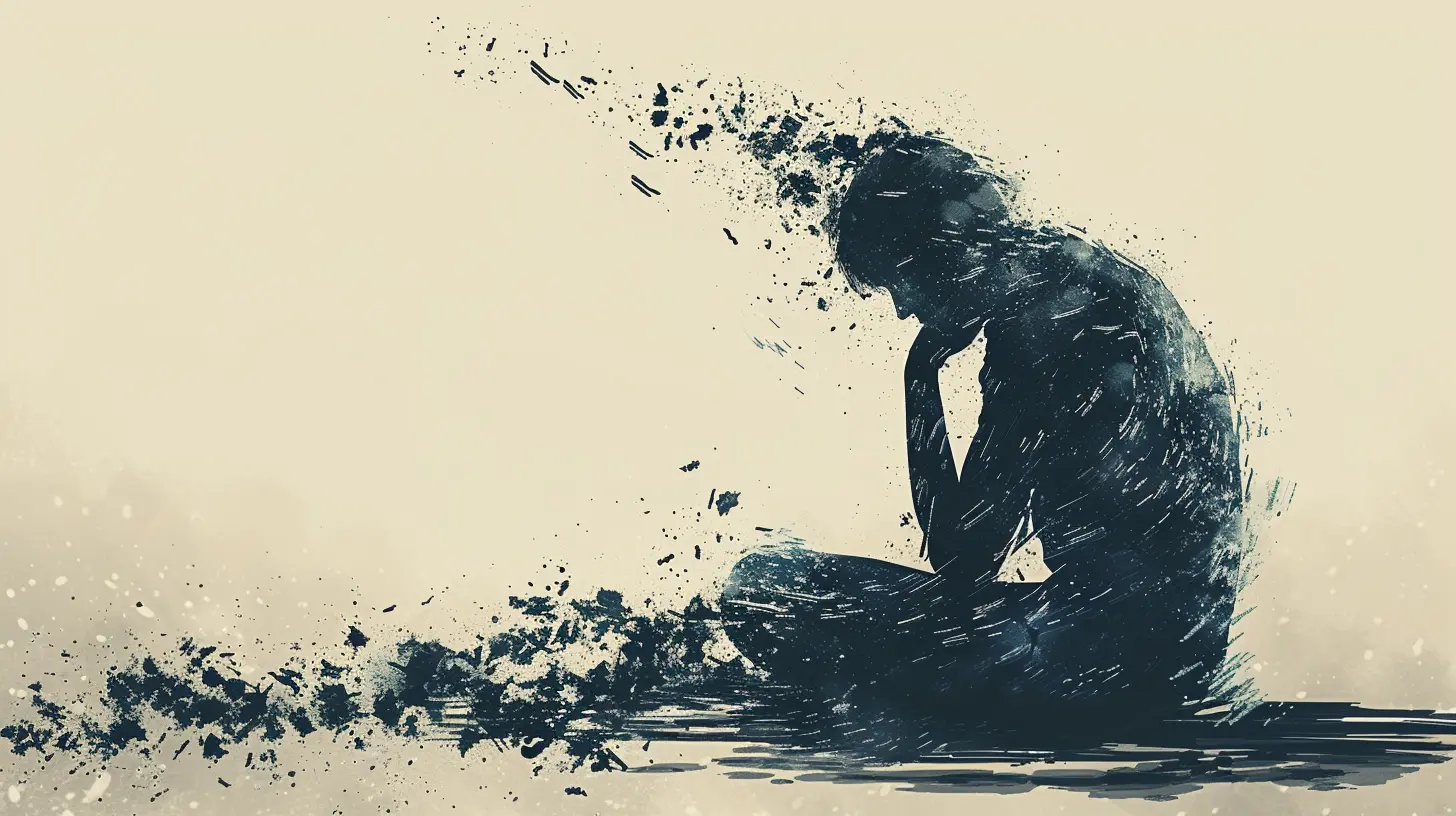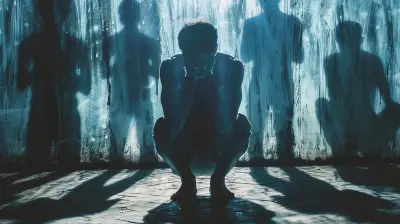Understanding the Impact of Depression on Decision-Making
5 June 2025
Let’s face it—making decisions is just part of life. From picking what to eat for breakfast to deciding whether to switch jobs, our brains are constantly weighing options, predicting outcomes, and guiding us through countless choices. But what happens when depression walks into the room?
Depression doesn't just mess with your mood. It seeps into every corner of your thinking, especially your ability to make clear-headed, confident decisions. If you’ve ever felt paralyzed trying to make even the smallest choice while feeling down, you’re not alone. There’s a complicated dance going on between emotions, thought processes, and mental fatigue—and depression leads it with two left feet.
In this article, we’re going to break down how depression affects decision-making, why it happens, and what can be done about it. So grab a cup of coffee (or tea, no pressure), and let’s dive into this underrated but seriously important topic.
What Is Depression, Really?
Before we get into the nitty-gritty of decision-making, let’s take a quick moment to understand what depression actually is. Not the casual “I’m so depressed” we throw around after a bad day, but the clinical kind that digs its claws in deep.Depression—also known as Major Depressive Disorder—isn’t just sadness. It’s a pervasive mental health condition that affects how you feel, think, and function. Symptoms can include:
- Persistent low mood or emptiness
- Fatigue and lack of energy
- Feelings of worthlessness or guilt
- Difficulty concentrating or making decisions
- Changes in appetite or sleep patterns
- Loss of interest in previously enjoyable activities
Notice that "difficulty making decisions" right there? Yep. It’s one of the core symptoms.
The Brain on Depression: What’s Going On?
Think of your brain as a network of highways where information zips around. In a healthy brain, those highways are wide open, fast-moving, and well-maintained. But when depression hits, it’s like there’s a traffic jam in every direction.The Role of Neurochemicals
When you're depressed, there's often an imbalance in brain chemicals like serotonin, dopamine, and norepinephrine. These guys are responsible for regulating mood, pleasure, motivation, and yes—decision-making.Now imagine you’re working with a depleted fuel tank. Your brain is trying to run high-level operations on low power. That’s what depression does—it slows down your cognitive processes and makes everything feel like a slog.
Prefrontal Cortex: The Decision-Maker at Risk
The prefrontal cortex is the command center for decisions, reasoning, and planning. Research shows that this area tends to be underactive in people with depression. So when you're trying to make a decision—big or small—your brain is fighting an uphill battle.
Decision-Making: A Quick Breakdown
To understand how depression interferes, it helps to look at how decision-making works normally. When we make choices, we go through a few quick steps (whether we realize it or not):1. Identifying the problem
2. Gathering information or options
3. Evaluating the options
4. Choosing one
5. Taking action
Seems simple, right? But each of those steps requires mental energy, focus, and confidence—things depression tends to drain.
How Depression Muddles the Decision-Making Process
If you’ve ever stared at a restaurant menu for 20 minutes and still felt like you couldn’t make up your mind, that’s just a tiny example of what we're talking about.Let’s break it down.
1. Indecisiveness & Overthinking
Depression often creates a loop of constant second-guessing. You might ask yourself:- “What if I make the wrong choice?”
- “What if I regret it?”
- “Am I even capable of making good decisions?”
This kind of over-analysis leads to “paralysis by analysis.” Your brain becomes so overwhelmed by choices that it’s easier to just freeze or avoid the decision entirely.
2. Negative Thinking Bias
Depression has a habit of putting on a pair of pessimistic glasses and seeing the worst in every option. Even when faced with a pretty good choice, someone with depression might focus only on potential drawbacks or assume they'll fail no matter what.It’s like being your own worst critic in every scenario.
3. Low Motivation and Energy
Making decisions takes energy—a surprising amount, actually. Depression zaps that energy fast. So when faced with choices, especially ones requiring effort or change, someone might simply not feel up to it. The brain goes, “Too tired to care,” and the decision either gets delayed or ignored.4. Reduced Cognitive Flexibility
Cognitive flexibility means being able to shift your thinking based on new information or changes. Depression tends to make people feel stuck, both mentally and emotionally. This can lead to rigid thinking, making it harder to adapt, consider alternatives, or change course when needed.Real-Life Examples of Depression-Affected Decisions
Still not sure what this looks like in everyday life? Let’s zoom into some common scenarios.Work Decisions
You might struggle to respond to emails, choose which task to start first, or decide whether to speak up in a meeting. Every little decision starts to feel like climbing a mountain.Relationship Choices
Depression can make it difficult to decide whether to talk to a friend, reach out for support, or even maintain a romantic relationship. You may feel unsure, unworthy, or overwhelmed by the idea of confrontation or vulnerability.Financial Decisions
Budgeting, shopping, or making long-term financial plans can become impossible. You might avoid checking your bank account or stress-buy something just to feel a temporary sense of relief.Health & Self-Care
Deciding to go for a walk, schedule a doctor’s appointment, or cook a healthy meal? All of these can feel like gigantic tasks when depression clouds your thinking.Why It Matters: The Ripple Effect of Poor Decisions
When depression affects your decisions, it often sets off a chain reaction. Poor or delayed decisions can lead to more stress, regret, or complications. Over time, this reinforces negative beliefs like:- “I can’t trust myself.”
- “I’m bad at life.”
- “Nothing I do works out.”
And that just feeds the depression beast, keeping the cycle going.
Strategies to Improve Decision-Making With Depression
Okay, so things sound a little bleak—but here's the good news: there are ways to improve decision-making, even when you're facing depression. It’s all about working with your brain, not against it.1. Keep It Simple
Start small. Don’t try to tackle huge life choices right away. Focus on manageable, low-pressure decisions to build confidence.Tip: Try limiting your options. Instead of choosing from 10 meals, narrow it down to just two.
2. Set Time Limits
Give yourself a set window to decide. Overthinking thrives on unlimited time. Setting a 10-15 minute timer can force your brain to focus and act.3. Use “Pros and Cons” Lists
Yes, it’s old-school—but it works. Writing down the benefits and drawbacks of each option can help you externalize your thoughts and get some clarity.4. Ask for Support
Talk through your decision with someone you trust. Sometimes, just hearing your own thoughts out loud can help you sort them out.Plus, getting an outside perspective can shake you out of that negative thinking loop.
5. Practice Self-Compassion
You’re not a failure if you make a mistake. Everyone does. Try to be kind to yourself, even if your decision doesn’t turn out perfectly.Progress matters more than perfection.
6. Therapy and Medication
Cognitive Behavioral Therapy (CBT) can be super helpful to challenge those negative thoughts and build decision-making skills. If needed, medication can also help regulate brain chemicals and improve overall functioning.When to Seek Help
If decision-making challenges are hurting your relationships, job, or quality of life, it’s worth talking to a mental health professional. You don’t have to tackle this alone.Depression is treatable, and getting support is a strong—and very healthy—decision.
Final Thoughts: You’re Not Broken
Let’s end with some real talk: Depression doesn’t mean you’re broken or incapable. It means your brain is working through some tough chemistry and emotional hurdles. And when it comes to making choices, it’s okay to not have it all figured out.You don’t have to make perfect decisions every time. You just have to keep showing up, one small choice at a time.
So the next time you find yourself stuck between options, second-guessing everything, or feeling overwhelmed by the pressure of deciding—remember this article, take a breath, and give yourself grace.
You’ve got this. Or at the very least, you're figuring it out—and that’s a decision in itself.
all images in this post were generated using AI tools
Category:
DepressionAuthor:

Jenna Richardson
Discussion
rate this article
2 comments
Adam Morris
This article provides valuable insights into how depression can cloud judgment and hinder decision-making. Understanding these effects is crucial for both individuals and professionals to navigate the complexities of mental health in daily life.
June 9, 2025 at 2:56 AM

Jenna Richardson
Thank you for your thoughtful comment! I'm glad you found the article insightful—understanding the impact of depression is vital for effective support and decision-making.
Kismet Hahn
This article astutely highlights how depression can cloud judgment and impede decision-making processes, emphasizing the need for targeted interventions to support individuals in navigating daily choices effectively.
June 8, 2025 at 4:31 PM

Jenna Richardson
Thank you for your insightful comment! I'm glad the article resonated with you and emphasized the importance of targeted interventions for those affected by depression.


